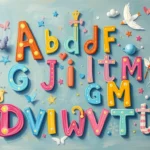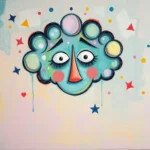
Imagine a world where your subconscious takes center stage, revealing insights about your life and challenges through vivid imagery and compelling narratives. Dreams are not merely whimsical stories played out in the theater of sleep; they are powerful reflections of our emotions, fears, and desires. They can serve as a guiding light, illuminating paths toward self-awareness and personal growth. In this exploration, we will delve into the dreams of a sixth form boy, unraveling the symbols and experiences that make up this rich tapestry of youth, ambition, and transformation.
As we journey through the landscape of dreams, we’ll uncover layers of meaning, drawing from cultural perspectives, psychological theories, and practical insights. So, grab a cup of tea, settle into a cozy spot, and let’s embark on this enlightening adventure together.
The Awakening: Symbols of Youth and Ambition
In the realm of dreams, symbols are the language of the subconscious. For a sixth form boy, the dreams he experiences can be laden with meaning that reflects his burgeoning identity and the challenges of adolescence. Each symbol can act as a gateway to understanding his internal world.
One of the most prominent symbols in a sixth form boy’s dreamscape could be school. This represents not just a physical place of learning but also the journey of growth and the quest for knowledge. Dreaming of classrooms filled with buzzing students might indicate a desire for social acceptance or the stress of academic performance. If the boy finds himself in a classroom but cannot understand the lesson being taught, it might symbolize feelings of confusion or overwhelm in navigating his academic and social life.
Another striking symbol might be exams. In dreams, these often appear as a manifestation of anxiety and pressure. Whether he’s frantically studying or arriving late to the exam hall, these scenarios can reflect his worries about future success, self-worth, or the fear of failure. However, they can also signal a readiness to tackle challenges head-on, suggesting that he is preparing for the next step in his life.
Friends and peer relationships often play a crucial role in a sixth form boy’s dream life. Dreaming of friends can symbolize the need for support and connection as he navigates the turbulence of adolescence. If he dreams of a falling out with a close friend, it may reveal underlying fears of rejection or a desire to strengthen those bonds.
Additionally, symbols like transport—cars, bicycles, or buses—can represent the journey toward independence. If he is driving a car in his dream, it might signify his desire for control over his life direction. Conversely, being a passenger could indicate feelings of vulnerability or a lack of agency.
Lastly, nature plays a pivotal role in dreams, often reflecting one’s emotional state. Dreaming of a tranquil forest may symbolize a longing for peace and clarity, while a stormy sea might represent inner turmoil or the chaotic emotions of teenage life.
By analyzing these symbols, we begin to understand the intricate layers of meaning behind the dreams of a sixth form boy, revealing his aspirations, fears, and the complexity of his journey toward adulthood.
Navigating the Dreamscape: Scenarios from the Sixth Form Experience
To better grasp the significance of these symbols, let’s explore some specific scenarios a sixth form boy might encounter in his dreams. Each scenario offers unique insights into his experiences and emotions.
-
The Forgotten Exam: In this dream, he arrives at school only to realize he has forgotten about a crucial exam. He feels a surge of panic as he rushes through the hallways, desperately searching for his classroom. This scenario highlights his anxiety about academic performance and the pressures of impending adulthood. It may also reflect a fear of inadequacy—a common sentiment during this transitional phase.
-
The Supportive Teacher: Dreaming of a teacher who encourages him or provides guidance can symbolize a desire for mentorship. This could indicate that he is seeking wisdom and support as he navigates his educational journey. The positive interaction might also suggest that he is feeling more confident about his abilities and choices.
-
The Social Gathering: In a dream where he attends a party filled with friends and laughter, this scenario might represent a longing for connection and acceptance. However, if he feels out of place or anxious in the dream, it may signify his struggles with social dynamics or the fear of not fitting in. Such dreams underscore the importance of friendships during adolescence and the desire for belonging.
-
The Journey Through a Maze: Picture a dream where he finds himself in a complex maze, struggling to find an exit. This imagery often reflects feelings of being lost or uncertain about his future. The maze symbolizes the challenges and choices he faces as he approaches the end of his schooling, highlighting his quest for direction and purpose.
-
The Transformation: In this powerful dream, he might envision himself undergoing a transformation—perhaps turning into a superhero or gaining a new skill. This scenario represents his aspirations and the potential he sees within himself. It embodies the desire for growth and self-discovery, showcasing how he views his journey as one of empowerment.
Each of these scenarios serves as a mirror, reflecting the complexities of adolescence and the myriad emotions experienced during this pivotal time. The dreams act as a narrative that guides him through challenges while highlighting his strengths and aspirations.
Charting Your Course: Personal Growth Through Dream Insights
As we dissect the dream experiences of a sixth form boy, we arrive at the heart of the matter: personal growth. Dreams can be a powerful tool for self-discovery and reflection, helping him navigate the tumultuous waters of adolescence.
One practical insight is to keep a dream journal. By recording his dreams upon waking, he can begin to identify patterns and recurring symbols. This practice not only aids in memory but also encourages him to reflect on his emotions and thoughts. Over time, he may notice connections between his dreams and his waking life, providing valuable insights into his inner world.
Another approach involves engaging with the symbols from his dreams. For instance, if he dreams frequently about exams, he might explore his feelings surrounding academic pressure. Is there a way to manage this stress more effectively? Are there resources—like tutoring or study groups—that could help alleviate some of the pressure he feels?
Additionally, discussing dreams with trusted friends or mentors can foster deeper connections and understanding. Sharing these experiences can serve as a catalyst for conversations about common fears and aspirations, allowing him to recognize that he is not alone in his struggles. This camaraderie can be a source of strength as he navigates the complexities of his final school years.
Lastly, embracing the notion of self-compassion is vital. Adolescence is a time of change, and it’s essential for him to be kind to himself as he grapples with new emotions and experiences. Recognizing that dreams are a natural part of this process can help him view them as opportunities for growth rather than sources of anxiety.
In conclusion, dreams are not mere figments of imagination; they are profound reflections of our inner selves. For a sixth form boy, these nocturnal narratives are rich with meaning, offering insights into his aspirations, fears, and emotional landscape. By exploring the symbols within his dreams, navigating the scenarios they present, and embracing the journey of personal growth, he can chart a course toward self-discovery and empowerment.
So, the next time you drift off to sleep, remember that your dreams are waiting to tell you a story, one that is uniquely yours. Listen closely, for they may just hold the key to unlocking your true potential.







